Dubai starts construction on first aerial taxi vertiport near DXB
RTA facility to handle 42,000 landings and 170,000 passengers annually
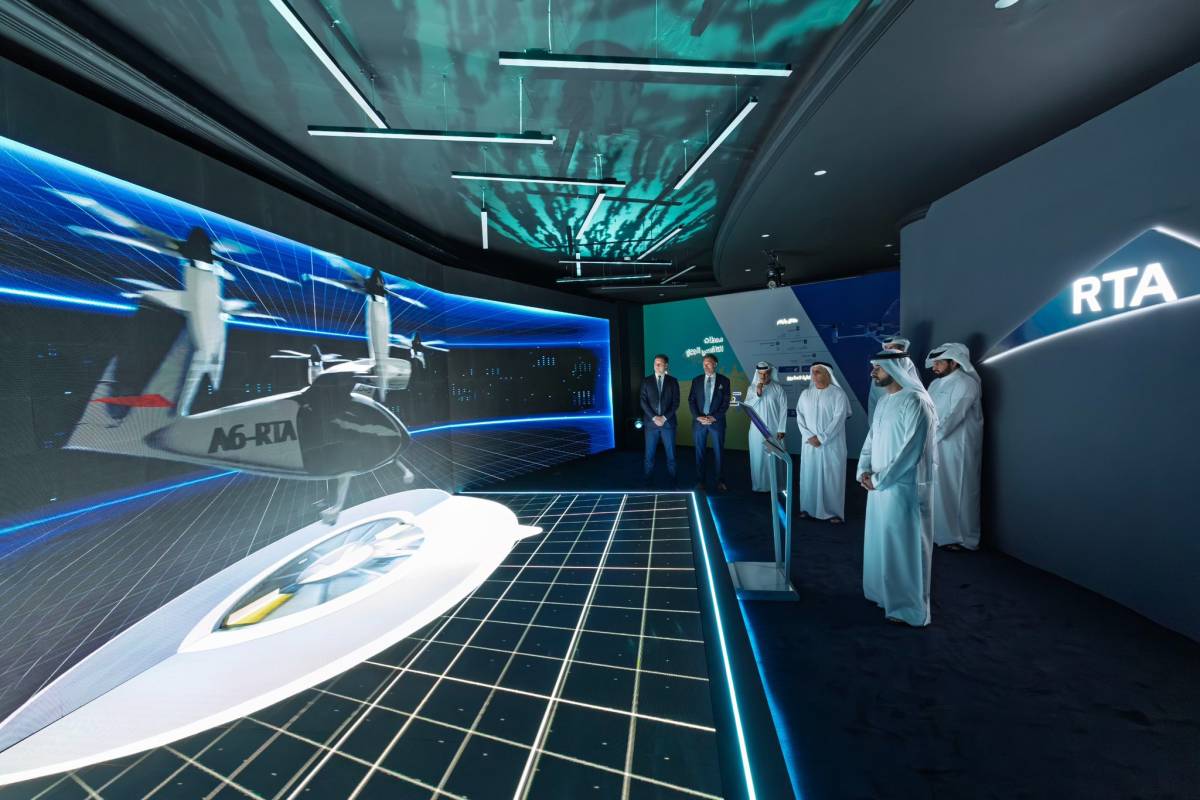
Dubai has begun construction on its first aerial taxi vertiport, a pivotal milestone in the city’s vision to introduce an urban aerial taxi network.
Located near Dubai International Airport (DXB), this facility is set to support Dubai’s ambitious plan to become the first city in the world to launch an urban aerial transport system.
Spanning 3,100 square metres, the vertiport will include multiple zones designed to ensure a seamless experience for passengers.
The facility will have designated areas for take-off and landing, aircraft charging, a dedicated aerial taxi apron, and parking spaces.
#Dubai gears up for a new era in aerial mobility with cutting-edge technology and innovation with the inauguration of the construction of the first Aerial Taxi Vertiport near Dubai International Airport.@rta_dubai | @jobyaviation | @Skyports_Infra pic.twitter.com/SWZU3cSZqd
— Dubai Media Office (@DXBMediaOffice) November 12, 2024
This vertiport is expected to handle 42,000 landings annually, serving up to 170,000 passengers per year.
Sheikh Hamdan bin Mohammed bin Rashid Al Maktoum, Crown Prince of Dubai and Deputy Prime Minister of the UAE, announced the launch of construction on the vertiport in a post on X.
He highlighted Dubai's commitment to shaping the future of global mobility through innovation, safety, and sustainability. The project aligns with Dubai’s broader vision for future transport solutions, showcasing the city’s leadership in cutting-edge technologies.
We commenced construction on Dubai’s first aerial taxi vertiport near Dubai International Airport. Spanning 3,100 sqm, the facility will have the capacity to handle 42,000 landings and 170,000 passengers annually. The initial phase will feature stations in Downtown, Dubai Marina,… pic.twitter.com/UVOipwqf3h
— Hamdan bin Mohammed (@HamdanMohammed) November 12, 2024
Landing sites across Dubai
The initial phase of Dubai's aerial taxi service will feature four key stations: Dubai International Airport, Downtown Dubai, Dubai Marina, and Palm Jumeirah. These locations will connect key areas of the city, reducing traffic congestion and travel times.
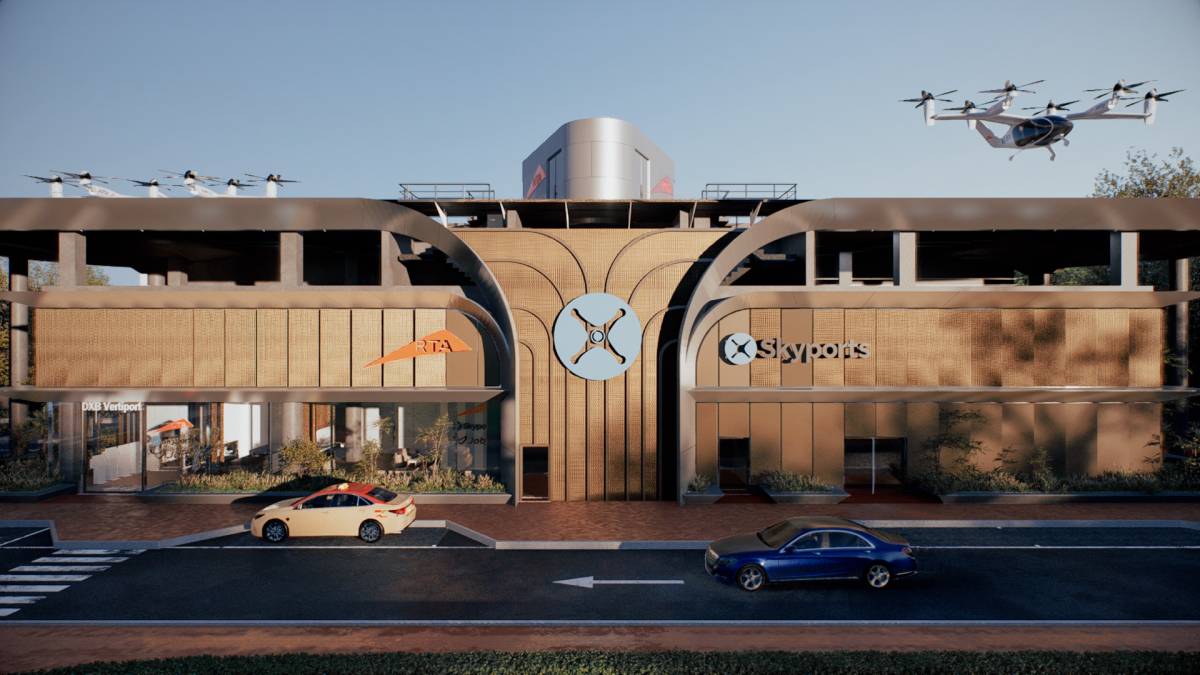
The service is slated for launch in early 2026, promising to offer a faster and more convenient alternative to traditional ground transport. A journey from Dubai International Airport to Palm Jumeirah, for example, is expected to take just 10–12 minutes, compared to 45 minutes by car during peak hours.
Electric and Quiet
The aerial taxis, developed with cutting-edge technology, will operate as electric vehicles, emitting zero emissions.
In addition to their sustainability, these air taxis will feature a quiet operation, emitting only 45 decibels—quieter than a typical rainfall. This will provide a more comfortable alternative to traditional helicopters.
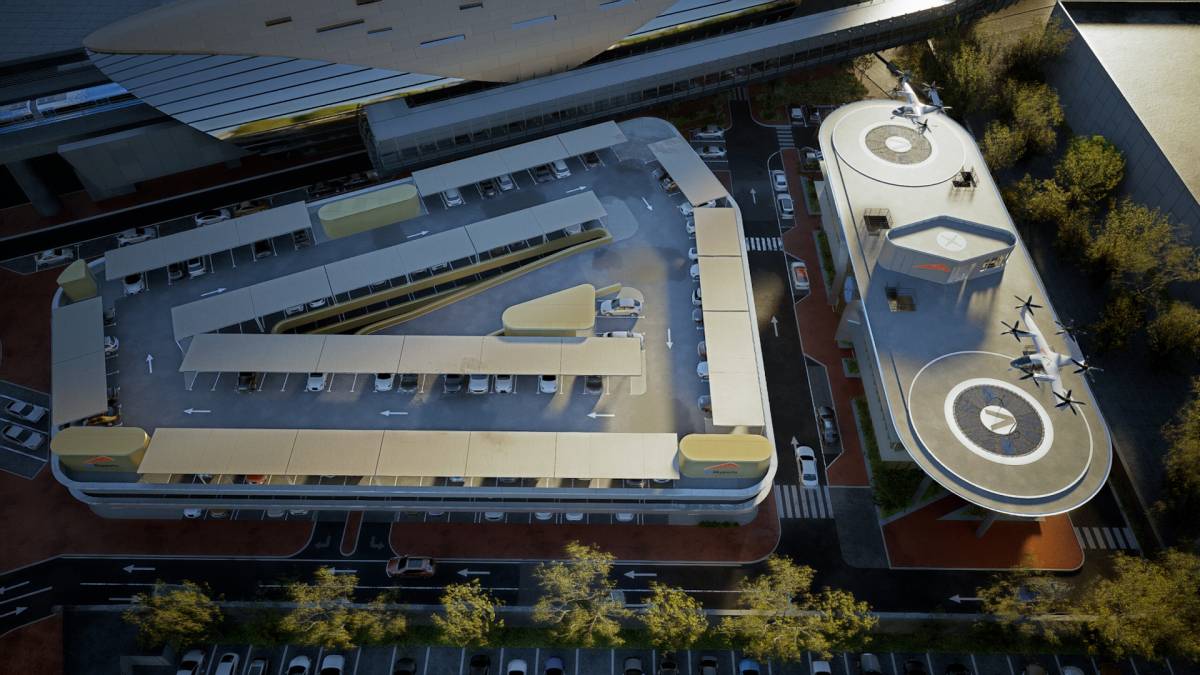
Each taxi will be capable of carrying four passengers and a pilot, ensuring safety and comfort throughout the journey.
Who will operate it?
The Roads and Transport Authority (RTA) has signed an exclusive agreement with Joby Aviation, a US-based leader in aerial vehicles, to operate the air taxis in Dubai for a period of six years. Joby Aviation will manufacture the aerial taxis, while Skyports, a UK-based company, will oversee the vertiport’s infrastructure.
The collaboration between these international entities, alongside the RTA, will ensure the successful launch and operation of Dubai’s aerial taxi service.
The Joby S4 Aerial Taxi
The aerial taxis will be the Joby S4 model, a state-of-the-art electric vehicle capable of vertical take-off and landing. Designed for sustainability, the S4 has zero emissions and features six rotors and four battery packs, giving it a range of up to 161 kilometres.
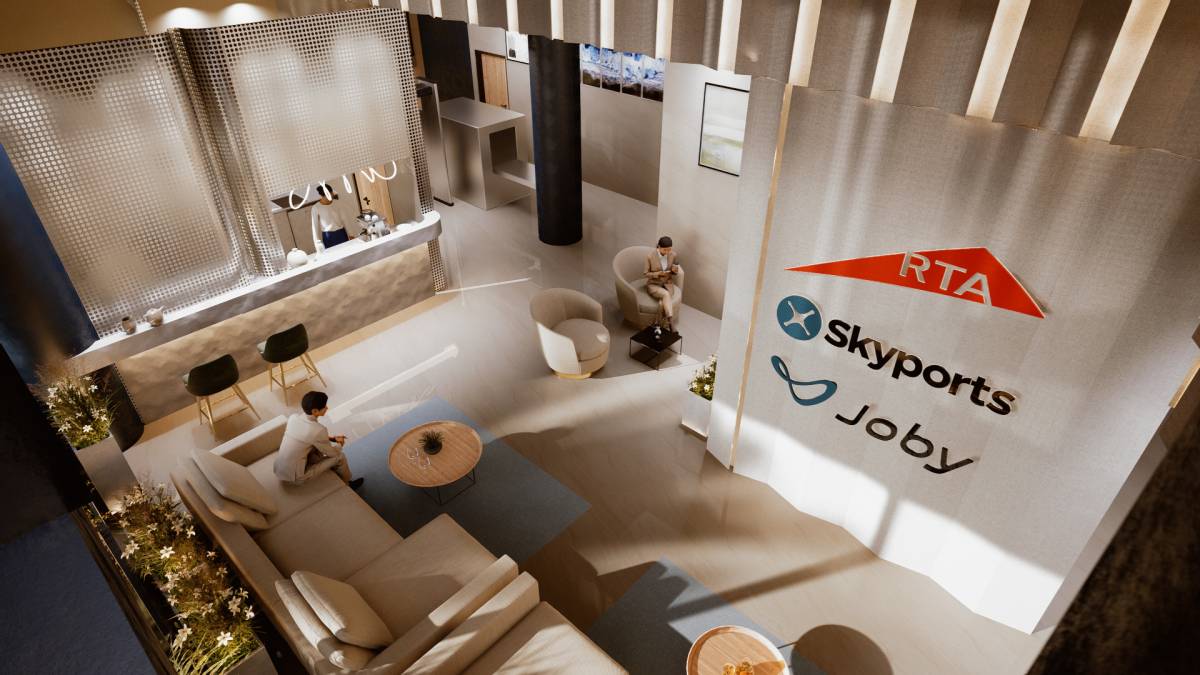
With a top speed of 321 km/h, the S4 promises to offer passengers a fast, efficient, and eco-friendly mode of transportation.
The noise generated by the aircraft is significantly less than that of traditional helicopters, making it an ideal solution for urban environments.
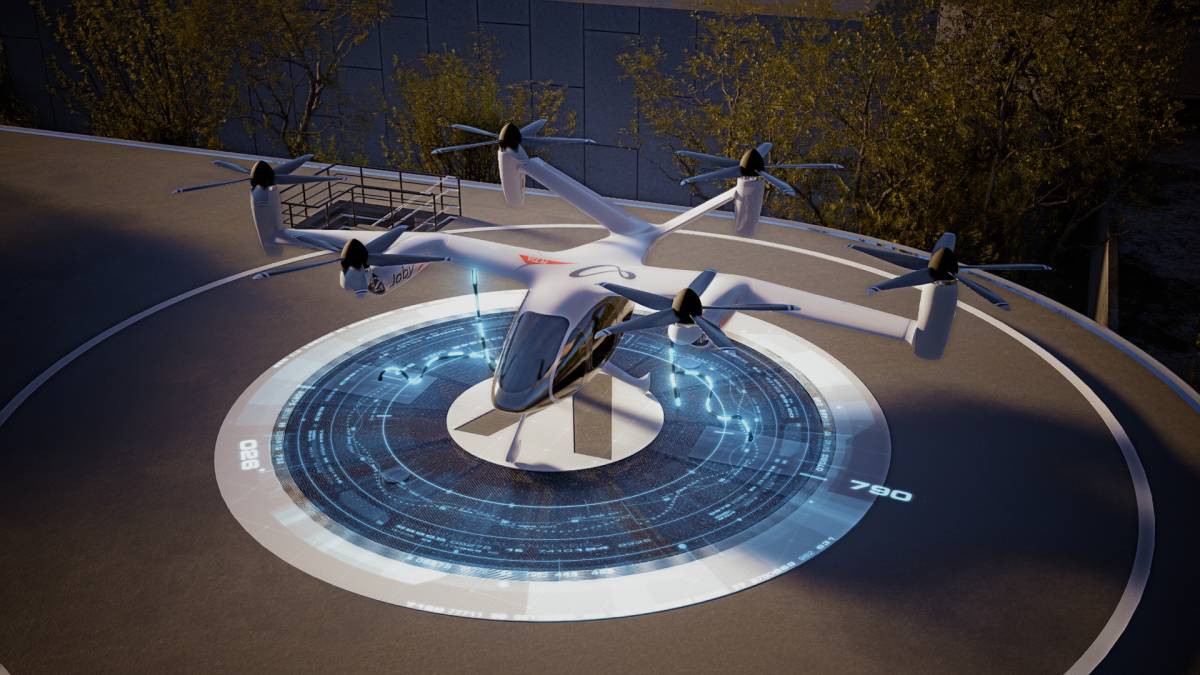
This project represents a significant step in Dubai’s commitment to innovation and progress. The aerial taxi service is set to complement similar initiatives in other countries, such as Saudi Arabia, where flying taxis are expected to serve major projects like the Neom city and AlUla by 2026.